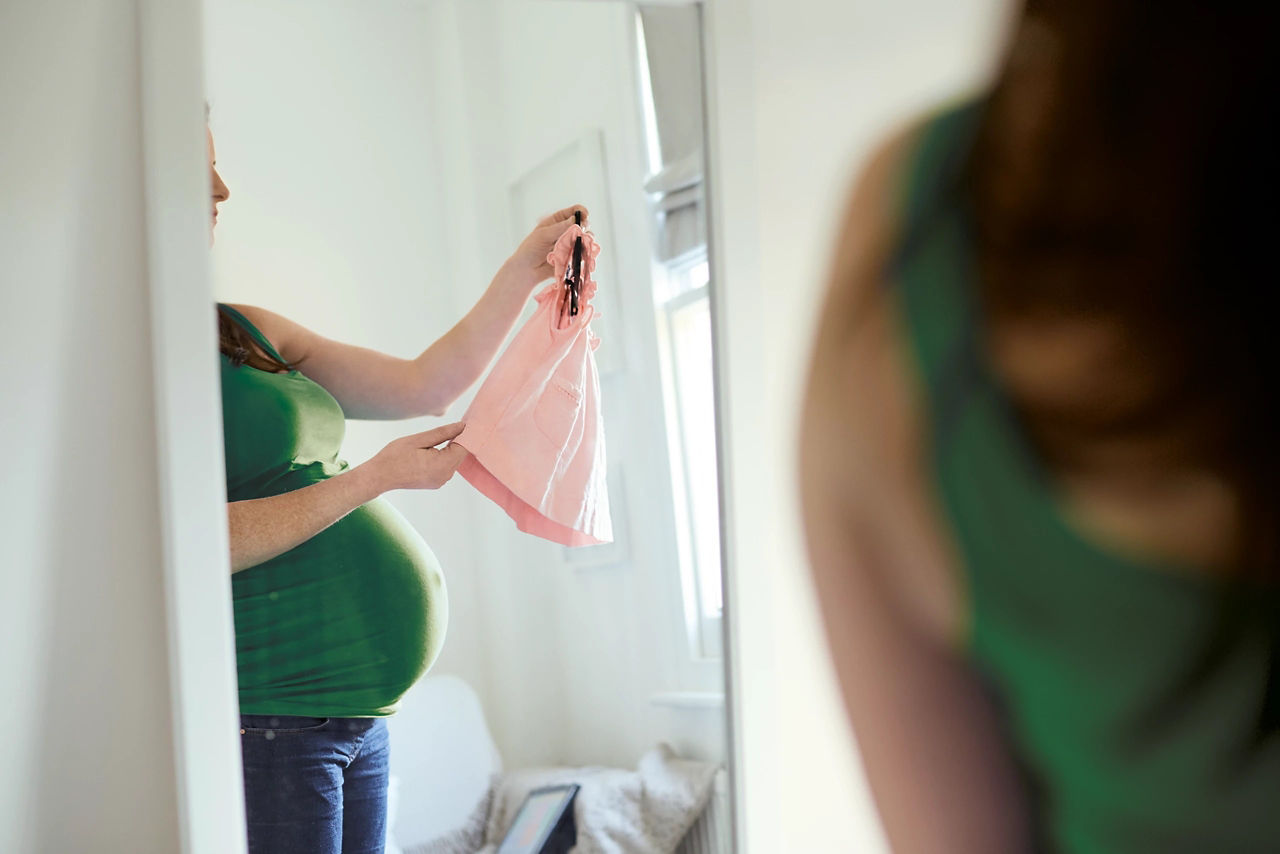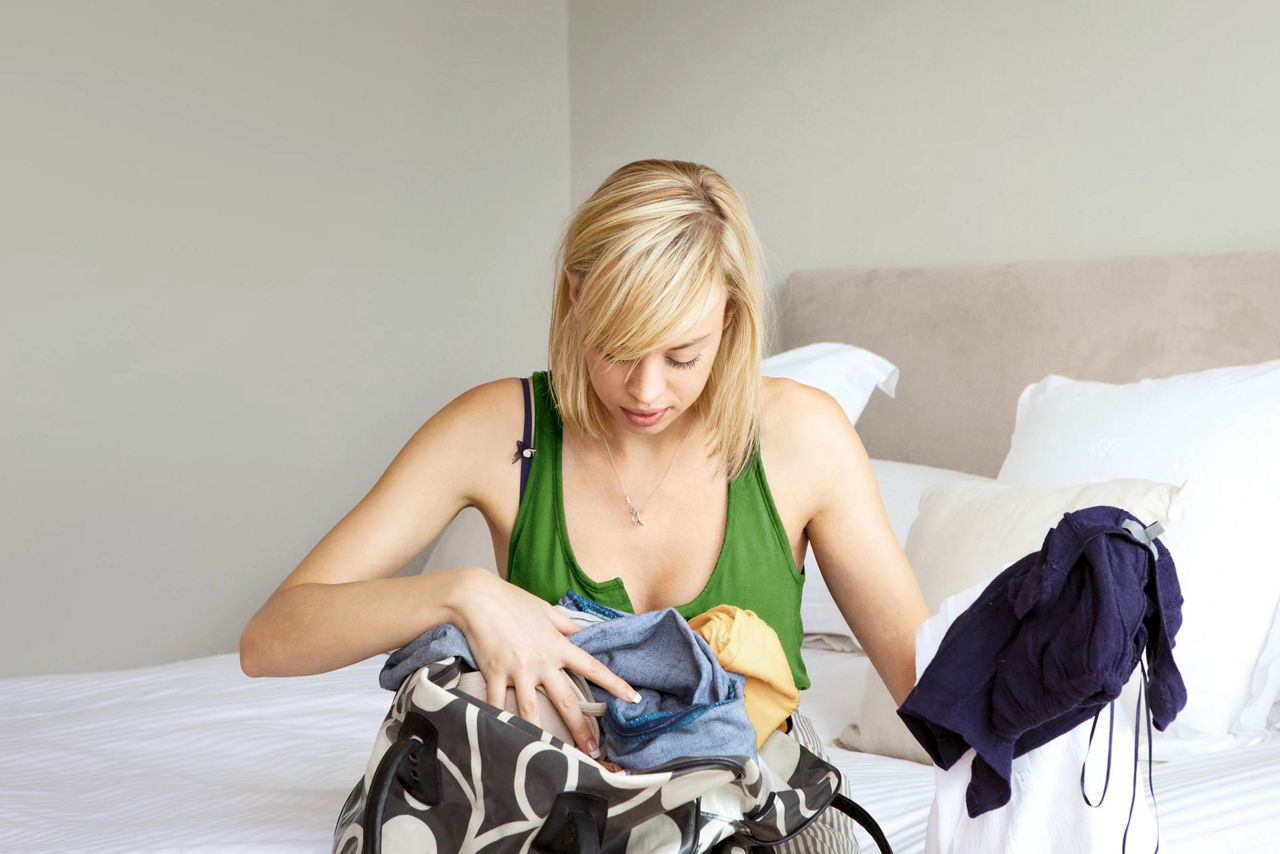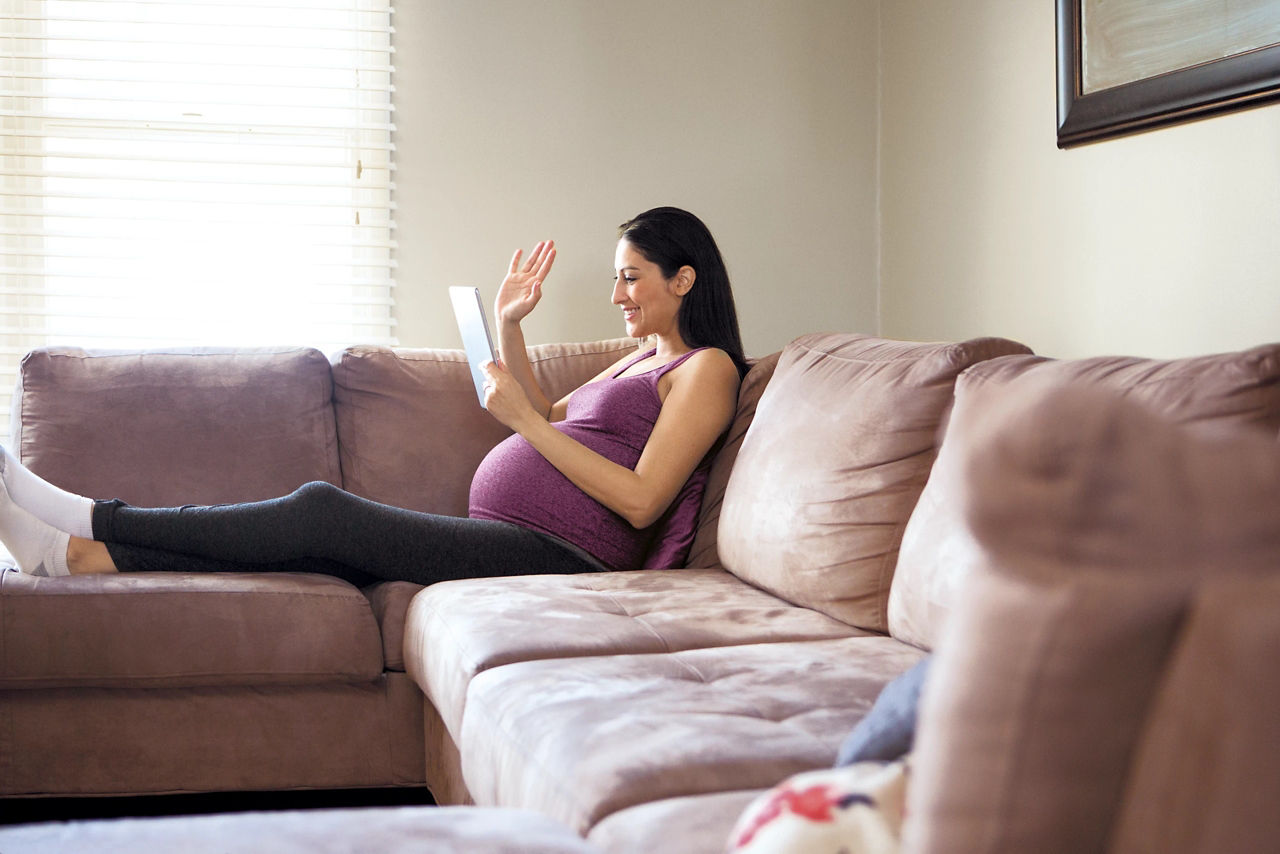Free weaning plan - Register here
Going into labour is the start of a very special journey, and one that’s different for everyone, whether you’re a first-time parent or adding to your growing family.
You’ve waited a long time for this moment, and now, it’s finally time to meet your baby.
If you’re wondering when to go to hospital in labour, it’s worth knowing that this will vary from pregnancy to pregnancy. That’s why, as soon as you start to experience some of the early signs of labour, it’s a good idea to contact the hospital or your midwife, as they’ll be able to assess how your labour is progressing and advise you if it’s time for you to make the trip.
Here we’re taking a closer look at how you’ll know when it’s time to go to hospital for labour, as well as what you can do to manage labour pains and some handy tips for your birth partner.
When is it time to go to the hospital for labour?
There’s no hard and fast rule to tell you exactly when you’ll need to go to the hospital, particularly if this is your first baby. It’s not uncommon to feel unsure about what to do, which is why it’s always best to call ahead and speak to your midwife for advice.
There are numerous things that might point to the beginning of your labour. Some women experience a heavy, aching feeling in their back as their labour begins, and a frequent urge to go to the toilet more than usual may also be an indicator.
Here are several other signs to look out for that might mean that it’s time to head to the hospital as you get ready to meet your baby!
Contractions
During labour, your womb starts to contract and this can feel a little like period pains. As labour progresses, your contractions will become more frequent, and it’s a good idea to time them, as it’s likely to be one of the things your midwife asks about.
Look out for your contractions becoming strong and regular, lasting about 60 seconds each and coming around 5 minutes apart
A 'show'
Not everyone will experience a ‘show’, but for some women it’s an indication that their labour is due to begin.
During your pregnancy, the entrance to your cervix is protected by a small plug of mucus. When it’s almost time to meet your baby, the plug of mucus is released and this is what’s known as a 'show'.
It’s also sometimes referred to as a ‘bloody show’ as it can contain a small amount of blood, making it pink in colour. There’s no need to be alarmed if this is the case, but if you start to experience any bleeding during labour, telephone your midwife or maternity hospital for advice.
Your water breaking
As your baby grows inside the womb, they’re protected by a sac of amniotic fluid that keeps them safe and secure. During labour, this sac bursts, and fluid is released from your vagina. This is what is known as your water breaking.
Again, not all women will experience this, and it’s not always as dramatic as it might be portrayed on TV! For most women, their water breaking is indicated by a slow trickling, rather than an immediate gush of fluid.
Should you go to hospital when your water breaks?
Usually, your water will break during your labour, so it’s a pretty good indication that your baby is making their way into the world.
However, your water breaking isn’t always an immediate signal to head to the hospital. Your water can break before you go into active labour and it’s usually nothing to worry about as things progress.
As a general rule of thumb, once your water has broken, labour usually begins within 24 hours. If it doesn’t, you may be asked to go to the hospital. This is because there could be an increased risk of infection to your baby without their protective amniotic sac, and your doctor may wish to discuss the possibility of an induction.
If your waters break before you’re 37 weeks pregnant, speak to your midwife or maternity hospital urgently, as it may be a sign you’re going into premature labour.
You may also be asked to come into hospital after your waters have broken if:
- Your baby is moving less than usual.
- There’s any change to the smell or colour of your water.
- There’s blood in your water or you start to experience bleeding.
- You have a raised temperature.
When should you call the hospital or your midwife in labour?
It’s always a good idea to call your midwife as soon as the symptoms of early labour. Talking through what’s happening will give your midwife a good chance to assess you, and advise on the next steps.
Remember, your midwife is here to help you through any doubts or concerns during your labour journey.
What your midwife will want to know when you’re in labour
To give you the right advice and guidance, your midwife will ask you a series of questions when you call them. This is so that they can establish how your labour is progressing, and whether or not it’s time for you to go to hospital.
Some of the things your midwife will want to know include:
- How long your contractions have been going on for, including how far apart they are and how long they’re lasting. You can use a clock with a second hand, or stop watch to keep track of this.
- When you last felt your baby move.
- Whether your waters have broken or how long it’s been since they broke.
- Whether you’ve had any vaginal bleeding.
- Whether or not this is your first baby.
- How far away you live - you may be asked to come into hospital sooner if you live further away.
Based on what you tell them, your midwife will decide whether you should start making your way to hospital or whether you can wait it out at home a little longer.
When to go to hospital with contractions
In all likelihood, and as long as you’re not in distress, your midwife may advise you to stay at home until your contractions have settled into a regular pattern. For example, being strong, regular, 5 minutes apart and lasting for around 60 seconds each.
Do you already have children?
Labour is often quicker with second, third and subsequent babies. So if this isn’t your first pregnancy, you may want to contact your hospital or midwife sooner.
When to call your hospital or midwife straight away during labour
Call your midwife or the hospital straight away if:
- Your water has broken.
- You suspect you’re in labour and you’re less than 37 weeks pregnant.
- You notice any change at all in your baby’s movements.
- You’re experiencing vaginal bleeding.
- You feel that you need pain relief to manage your contractions.
If you aren’t able to call the hospital for any reason, and you’re concerned about any of the above, don’t hesitate to head straight there so that a doctor or midwife can make sure everything’s ok.
Can I call an ambulance for labour?
Ideally you should only call for an ambulance in an emergency. In the first instance, you should always call your midwife or the hospital for advice during your labour. If they have any concerns and think that you need an ambulance, they’ll tell you to call for one or organise that for you.
You should always call for an ambulance if:
- You have a strong urge to push and are about to give birth.
- You’re experiencing strong and persistent abdominal pain outside your contractions.
- You’re having difficulty breathing or experiencing chest pain.
- You’re on your own and unable to get to the hospital yourself.
Are you having a home birth?
If you’ve decided to have your baby at home, you should follow the plan set out by you and your midwife during pregnancy. However, call your midwife if you have concerns, as they’ll be able to provide you with the advice you need.
Managing pain at home
Whether you’re trying to relax prior to heading into the hospital, or getting ready to give birth at home, there are a number of ways you can try and manage your pain during labour. These include:
- Rocking and swaying on a birth ball.
- Using a TENS machine.
- Taking a warm bath.
- Breathing and relaxation exercises.
- Moving and walking around.
Could it be a false labour?
When you’re getting ready to meet your baby for the first time, every tiny twinge can leave you wondering whether your labour is about to begin.
It’s not uncommon for your body to start preparing for birth with what’s known as Braxton Hicks. These are a type of practice contraction, and you may experience a ‘tightening’ over your baby bump for anywhere between 20 and 30 seconds.
Braxton Hicks contractions are completely normal and nothing to worry about. However if you start to experience pain, and the contractions become more regular and get closer together as time goes on, it’s time to call the hospital or your midwife as you might very well be in labour.
If you’re wondering how to tell the difference between Braxton Hicks and actual contractions, here’s a handy guide:
Braxton Hicks contractions:
- are typically shorter. They will usually last between 30 to 60 seconds.
- only happen from time to time and have no regular pattern
- not usually too painful
Labour contractions:
- are longer. They will usually last longer than 30 seconds.
- happen more frequently and closer together
- will gradually become more intense
Tips for your birth partner
Your birth partner will want to do everything they can to help you feel as relaxed and comfortable as you can at every stage of your labour and birth.
There are plenty of ways your birth partner can support you during your labour, and here are some of our top tips:
- Know the parking/travel situation at the hospital. Keep change handy if you need it, or have the appropriate parking app downloaded, set up and ready to go.
- Keep a bag of snacks, water and clean clothes ready for the birth. You never know how long you’ll be at the hospital for.
- Discuss what you want and need from them before labour, and make them aware that this is subject to change.
- Make sure your birth partner understands your birth plan and your wishes in case they need to make this clear at the hospital.

Join the C&G baby club today
- Weekly emails with tips and advice for your stage
- 1-to-1 support from our dedicated Careline team, 8.30am - 5.30pm Monday to Friday.

Join the C&G baby club today
- Weekly emails with tips and advice for your stage
- 1-to-1 support from our dedicated Careline team, 8.30am - 5.30pm Monday to Friday.
More from pregnancy
Pregnancy topics
Any more questions?
Our specialist baby advisors and experienced mums are here to talk and ready to help whenever you need them. You can call us or reach us on Live Chat 8.30am-5.30pm Monday-Friday.
Phone
Call 1800 570 570
FAQs
For all the latest information
Email Us
Send us an email
8.30 am - 5.30pm Monday-Friday






